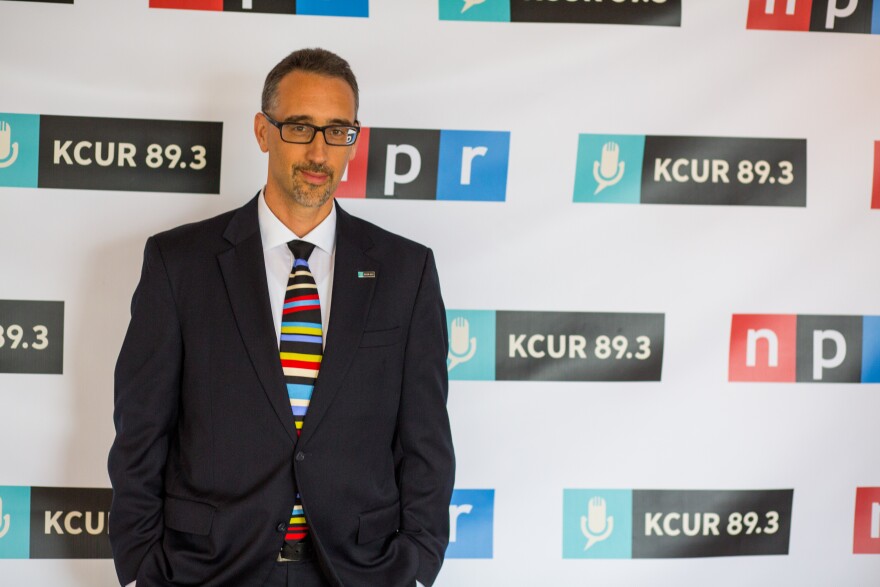Kansas City is one of the few metropolitan areas of its size in the country without a full-time classical music broadcaster.
That may be about to change.
KCUR 89.3 has signed an agreement to purchase KWJC 91.9 FM from William Jewell College in Liberty, Missouri, with the intention of bringing 24-hour classical music programming to Kansas City. On Thursday, KCUR — Kansas City’s public radio station — filed an application with the Federal Communications Commission to approve the purchase.
“Given the strength of the performing arts community and the classical music community in town, we think it’s a huge hole, both for audiences and performing arts organizations,” KCUR general manager Nico Leone said. “We see in market after market that classical music stations can be a rising tide for performing arts organizations.”
For the last year, KCUR has been working to raise the $5 million or so it will take to buy the station and cover startup costs for the first few years. Leone said about half the amount has been raised, and he expects the newly branded classical music station to launch in spring 2020.

“We were looking for a deal that made sense financially, that could deliver a great new service to Kansas City that we know people still miss and have a positive impact on other arts organizations in Kansas City,” Leone said.
William Jewell College had leased the KWJC 91.9 signal to the Educational Media Foundation, a Christian radio network.
The college’s decision to sell was motivated by its desire to be seen as an indispensable partner to Kansas City, said Elizabeth MacLeod Walls, president of William Jewell.
“And so, as we were looking at a signal that, quite frankly, had been leased by an entity that really has no association with Kansas City, we realized we had the opportunity to leverage this asset so we could actually contribute to the betterment of the region,” she said. “It really was not something we had to contemplate for very long.”
Though KWJC’s license, like KCUR’s, will be held by the University of Missouri Board of Curators and assigned to UMKC, it will operate as a standalone entity separate from KCUR — although some back office functions will be shared.
“If we’re going to do this, it needs to be a net positive for KCUR,” Leone said. “We can’t do this if it’s going to divert revenue.”
The two stations will operate out of the same space at 4825 Troost in Kansas City, Missouri, in a building owned by UMKC. Leone said the plan is to hire eight or nine people, including announcers, and create programming with a distinctively local focus.
“There’s very little point in doing a radio station like this in classical music if you’re not intensely focused,” he said. “When people can get music from anywhere, the only way you can differentiate yourself is with your connection to the local community.
“If you can listen from anywhere, you have to sound like you’re from somewhere to really make an impact and get people to tune in. So that local strategy is both a differentiator for us and a programming strategy as well as a way we can serve both our audience and the arts community in Kansas City.”
Leone played down concerns the classical music station would poach KCUR’s public radio listeners, citing studies showing the overlap between news and classical music audiences is only around 15% to 20%.
“In Kansas City about 24% of our core audience listens to classical music,” said Stephen Steigman, KCUR’s director of broadcast operations, who was also involved in the plans to acquire KWJC. “But that doesn’t mean they will walk away from KCUR. They still want news and information. But classical music provides inspiration that you can’t get from a news station.”
After KWJC 91.9 launches as a classical music station, KCUR plans to drop its three hours of classical music programming on weeknights and substitute news programming, Steigman said. KCUR will continue to carry non-classical music programs like Fish Fry on weekends.

KWJC won’t carry news programming, “but we recognize there’s an opportunity for classical music listeners to learn more about KCUR and vice versa,” Steigman said. “There will be crossover promotional campaigns that don’t interrupt the formats.”
About 70 public radio stations around the country offer all-classical music formats. Another 65 offer a mix of news and classical music.
It’s been nearly 20 years since KXTR, Kansas City’s only classical music station, was moved by its owner from FM to AM — not long after it had ended local programming in favor of a satellite service.
Clark Morris, executive and artistic director of the Harriman-Jewell Series, a local arts presenter that is an arm of William Jewell College, said the absence of a classical music station in Kansas City had deprived the series of a key communication vehicle.
“I think there’s an enormous opportunity for us to be able to provide rich content for a great audience that’s hungry,” he said.
Leone said he’s talked to most of the major classical arts organizations in town, “and universally, the feedback is this is a great idea and how it can be beneficial to their organizations and how we can partner with them.”
He added: “I think this will be a good thing for the community. There’s an audience we think we can serve well. We think we can do that in a way that’s good for the community, good for arts organizations and good for KCUR all at the same time.”
Dan Margolies is a senior reporter and editor at KCUR. You can reach him on Twitter @DanMargolies.


